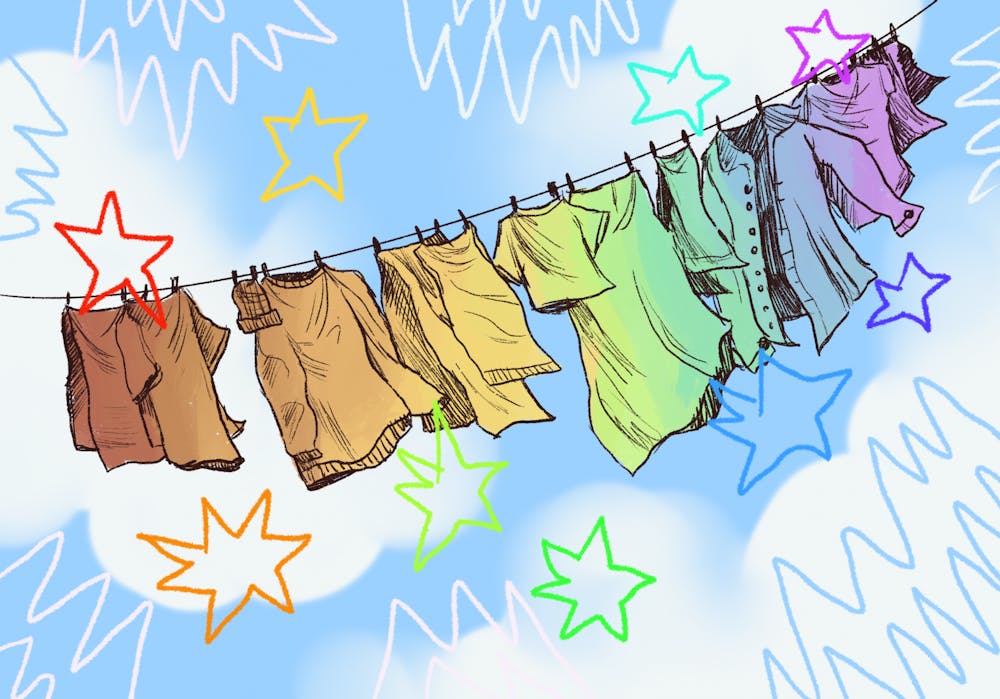This story is an expansion on reporting about two separate clothing swaps held within the same week at Western. Read the main story here.
Along with the perk of free clothes at the Free Sustainable Clothing Swap, students at Western Washington University were able to learn about how to shop in a way that minimizes impact on the environment.
“Making sustainable decisions is really important,” said Kate Stragis, the executive director of ReUse Works, a local non-profit. “The textile waste issue around the globe is astronomical.”
Trading, donating and mending clothes instead of throwing them away reduces textile waste.
Textiles can range anywhere from rugs and furniture to towels and t-shirts.
About 11.3 million tons of textiles were dumped into landfills in 2018, according to the Environmental Protection Agency’s website. This number has been increasing since the 1960s when the EPA began their recordings through the American Apparel and Footwear Association. Landfills produce a number of negative effects on the planet including the emission of methane, a harmful greenhouse gas.
“With fast fashion, it has sort of become trendy to throw away clothes,” said second-year Alaina Wright, a clothing swap participant. “I think that it's really important to promote to people that there are inexpensive options because a lot of times when people think of ‘sustainable’ they think of, like, Whole Foods you know?”
Workers at the clothing swap were available to talk to students about fast fashion, the term used to describe large companies that produce mass amounts of clothing as cheaply and quickly as possible. Stores like SHEIN, Topshop and Urban Outfitters are all places that participate in this type of production, said Zero Waste Western Coordinator Kait Schultz.
The clothing swap was completely free for participants, even the complimentary raffle entry. Students could make pledges such as “I will donate my clothes to not-for-profit thrift stores” and “I will repair my clothes first instead of discarding them” to encourage sustainable habits and for a chance to win a gift card to a local thrift store.
Ragfinery, ReUse Works’s local second-hand store, diverts about 10,000 pounds of textile waste in donations each month, Stragis said. Ragfinery also leads programs in sustainability and job training.
“Personal choice is really important, but the biggest thing we need to remember is holding corporations accountable that are creating these humongous amounts of waste,” Stragis said. “It’s also something that we have to do as a society to try to move away from buying something once and throwing it away.”

Simone Higashi (she/her) is a third-year News Editorial student and senior reporter for The Front. Simone likes to knit and read in her free time. You can reach her at simonehigashi.thefront@gmail.com.






